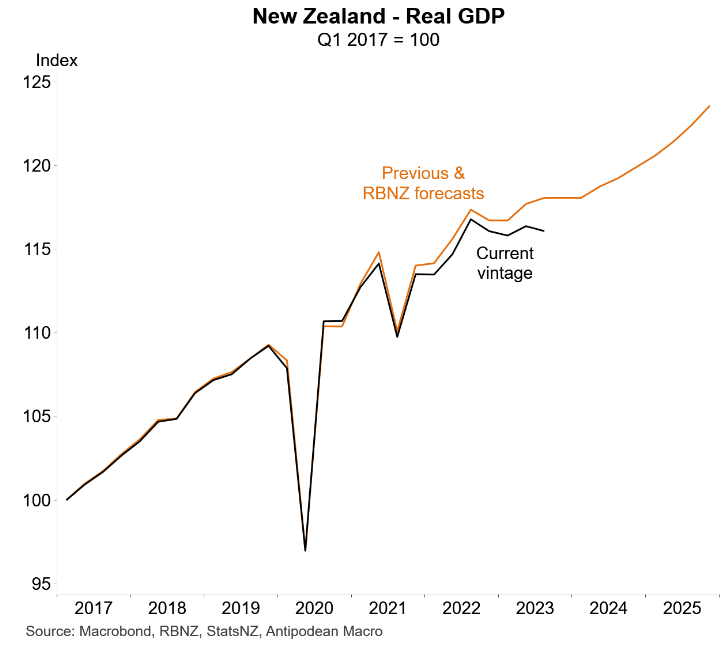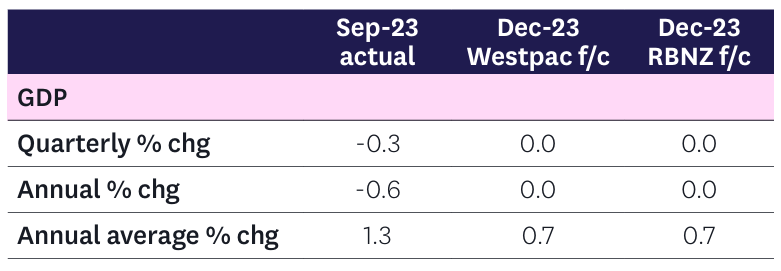Following revisions to prior quarters, Statistics New Zealand reported that New Zealand’s economy plunged into recession in the third quarter of 2023, badly underperforming the Reserve Bank’s growth forecasts:

The growth picture was even worse when adjusted for population growth, with New Zealand’s economy plunging into a deep per capita recession.
GDP per capita has fallen by almost 4% from its peak.
The result clearly came as a surprise to the Reserve Bank, which stated the following in its February Monetary Policy Statement (MPS):
“Members noted that gross domestic product (GDP) declined by 0.3% in the September 2023 quarter. This was weaker than projected in the November Statement”
“Revisions to GDP going back several years imply that potential GDP – the amount of production that the economy can supply sustainably – has also been lower than previously assumed”.
“On net, these factors imply that the starting point for capacity pressures in the New Zealand economy is only slightly lower than previously assumed”.
This week we will receive the Q4 GDP growth figures from Statistics New Zealand.
Westpac tips that New Zealand will record a quarter of flat growth. However, given that New Zealand’s population is growth at a swift 2.7% annual rate, the nation’s per capita recession will deepen.

Westpac’s Q4 new Zealand GDP forecasts
“Regardless of whether there’s another negative or not, the real point is that any figure we get will show an economy performing in a very underwhelming manner”, notes David Hargreaves at Interest.co.nz.
“The NZ population – courtesy of surging inbound migration – increased 2.8% last year”.
“That’s right, there’s a whole lot more people driving the economy and yet it’s going nowhere. So, on a per capita basis our GDP is really flagging”, Hargreaves said.
It seems hard to believe that only last month, ANZ economists tipped that the Reserve Bank would hike the official cash rate by 0.25% at both its February and April meetings.
Given the undeniable weakness in the economy, which has driven the sharpest fall in per capita GDP since the global financial crisis, surely rate cuts will soon be on the Reserve Bank’s agenda?

